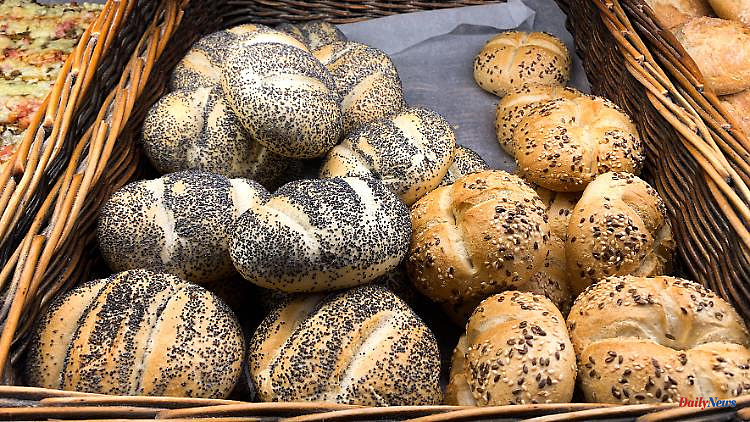Because of the Ukraine war, food is becoming more and more expensive in the euro area. This is particularly noticeable in eastern EU countries: In Lithuania, prices are rising by around 22 percent. In Germany, too, there may be higher costs.
According to figures from the European statistics agency Eurostat, people in Eastern European countries are particularly hard hit by rising food prices. In Lithuania, the price increase for food in April compared to the previous year was 22.1 percent, as reported by the Federal Statistical Office. Food prices rose by 8.9 percent on average in Europe, while the price increase in Germany was slightly lower at 8.5 percent.
The price increase in Bulgaria was similar to that in Lithuania, at 21 percent, and food prices in Latvia rose by 17.7 percent. Food prices also rose by more than 14 percent in other countries in Eastern Europe, such as Hungary, Estonia, Romania and Slovakia. On the other hand, the lowest price increases were registered in Ireland with 3.6 percent and France with 4.3 percent.
Prices in the euro zone rose particularly sharply for some important staple foods: edible fats and edible oils rose by an average of 23 percent in the EU in April, while the rate of inflation in Spain, Portugal and Bulgaria was over 40 percent. Cereal and meat products also became particularly expensive in Eastern Europe: While the EU average rate of inflation was 10 and 9.1 percent respectively, people in Bulgaria, Lithuania and Hungary had to pay over 20 percent more for bread in April 2022. In Poland, Bulgaria and Hungary, meat prices rose by more than 15 percent. In Germany, bread rose by almost 9 percent in the same period, and meat products rose by almost 12 percent.
High food prices are also more relevant in Eastern Europe because people there spend a larger proportion of their income on food. According to Eurostat data, it is a good 28 percent in Romania and more than 20 percent in Latvia, Slovakia and Bulgaria. In Germany, the proportion is around 11 percent.
In the event of a stop in the supply of Russian gas, Federal Minister of Agriculture Cem Özdemir also expects further price increases and supply bottlenecks for individual foods in Germany, the "Rheinische Post" reported. "Many companies in the agricultural and food industry (e.g. dairies, slaughterhouses, mills and bakeries) are absolutely dependent on the supply of gas in order to be able to produce food or animal feed," says a paper by his ministry. "If natural gas supplies from Russia are stopped, further price increases and bottlenecks in the supply of individual foods are to be expected. Overall, however, the food supply in Germany is still secured," writes Özdemirs Haus.
The federal government is currently assuming that the entire supply of gas "can be physically secured until the end of summer or the beginning of autumn 2022 in the event of a short-term or longer-term failure of all Russian gas imports," the answer said.












